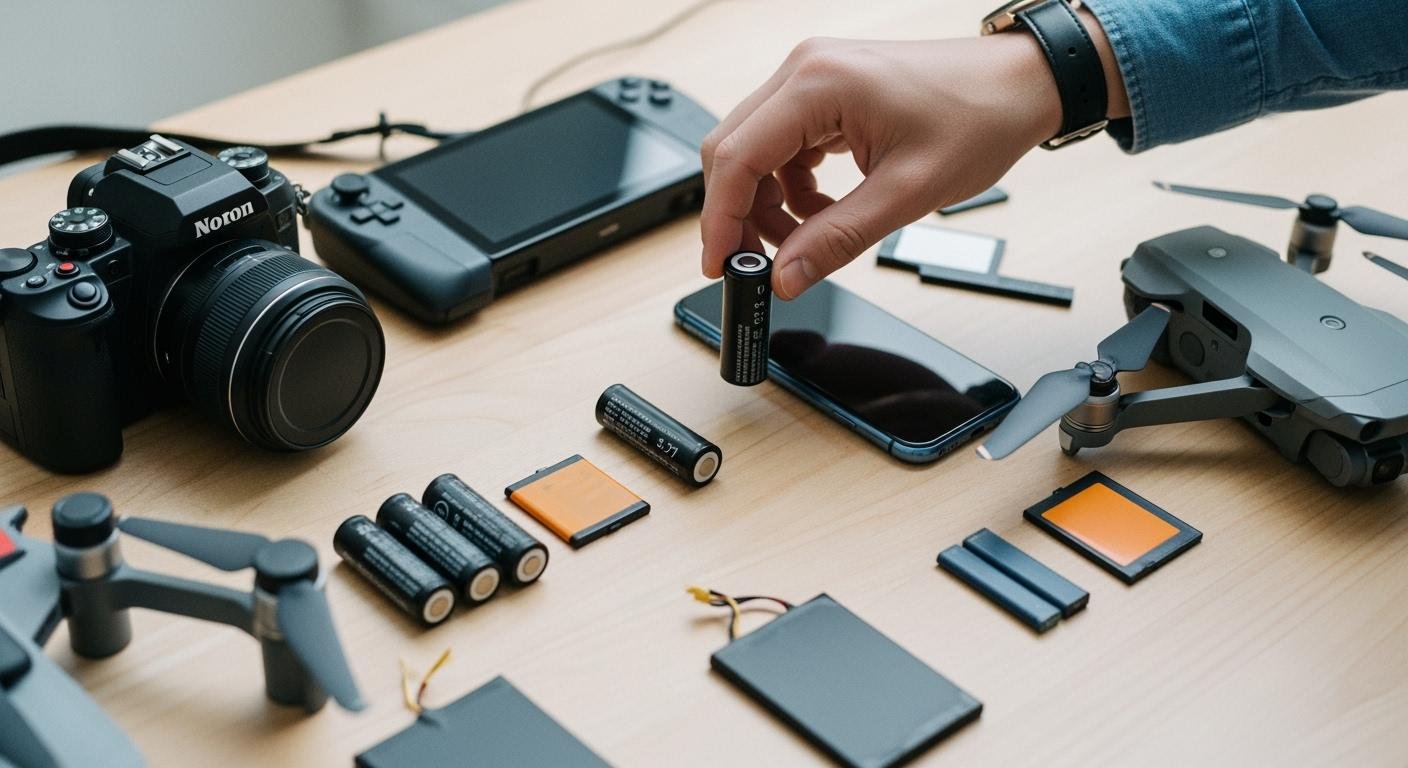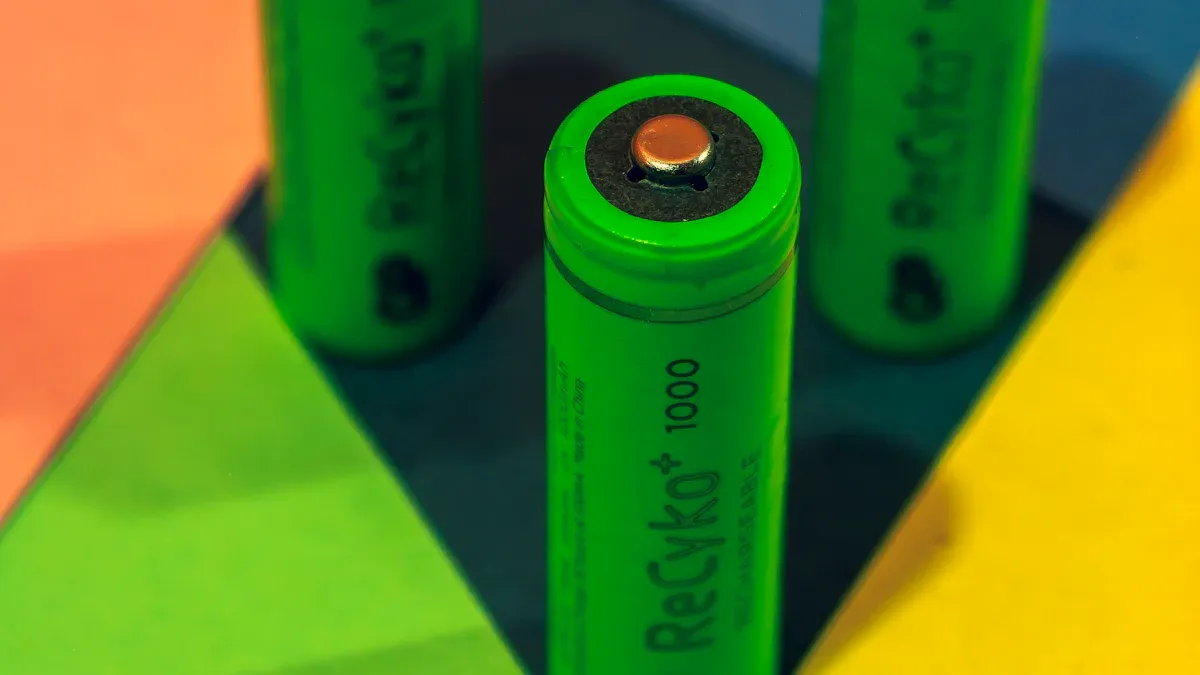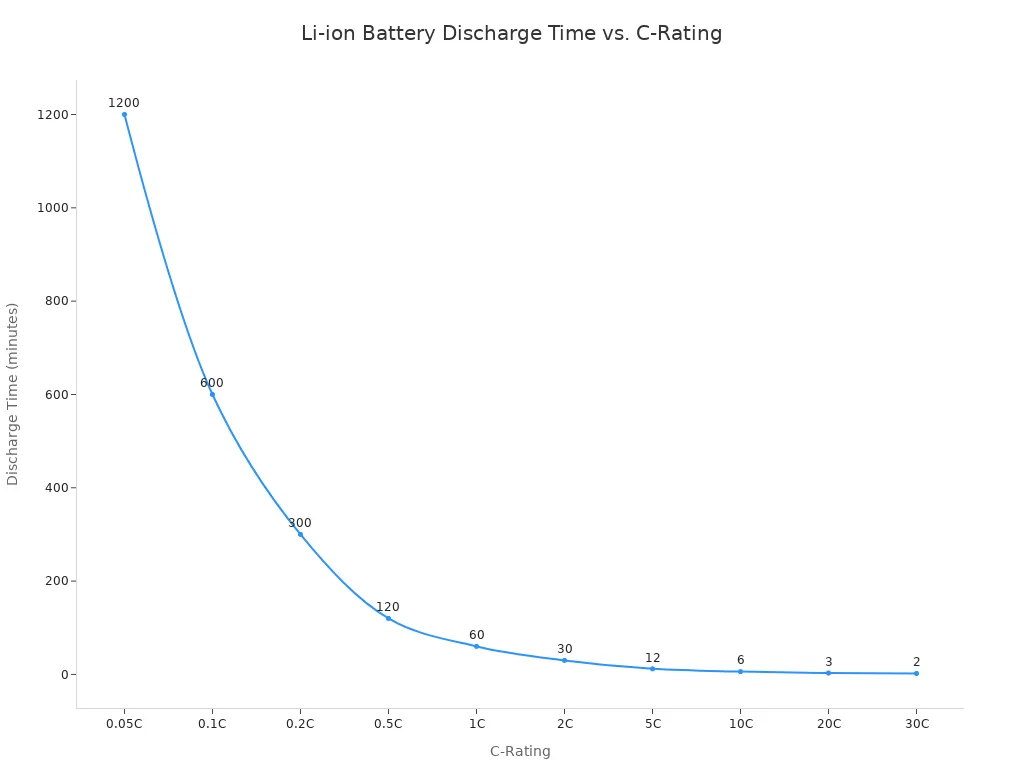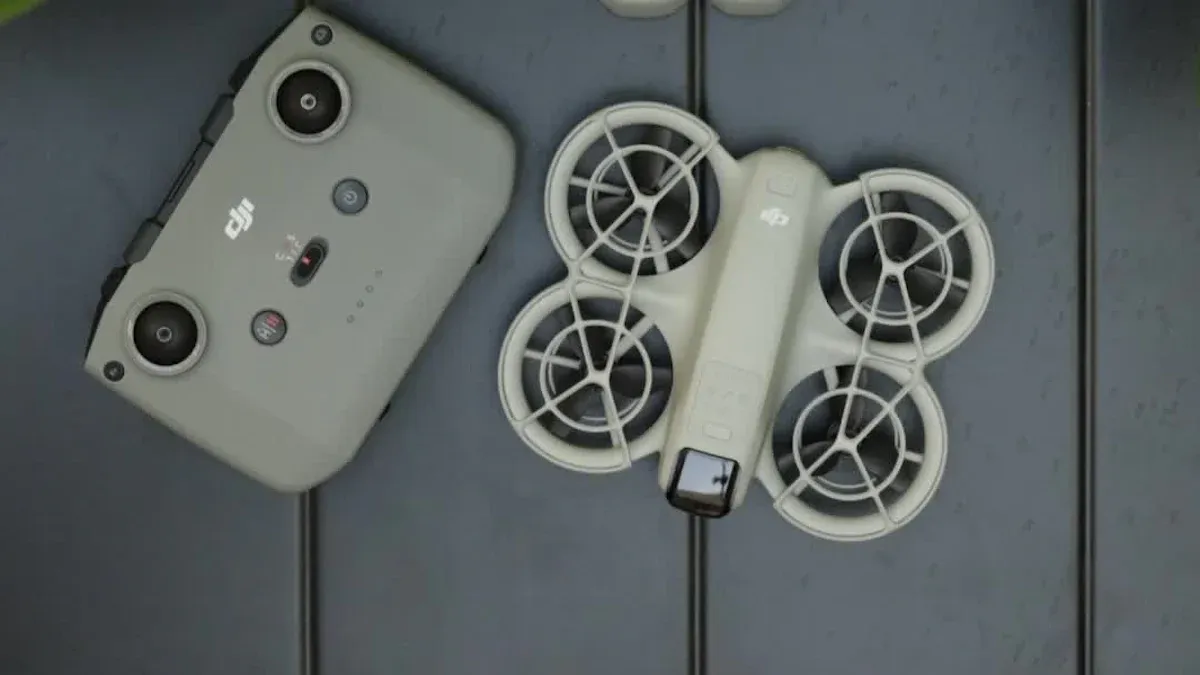
You need the right 3.7v li-ion battery for your device. These battery recommendations help you choose correctly. Each lithium option offers unique strengths.
- Molicel P28A: This lithium battery provides the best overall power and capacity balance.
- Sony/Murata VTC5A: It delivers excellent high-drain performance for demanding electronics.
- Samsung 30T: You get maximum power output from this top-tier lithium cell.
- Molicel P42A: This 3.7v li-ion battery is the best-balanced 21700 lithium option.
- Samsung 25R: It is a reliable and budget-friendly li-ion 3.7v battery.
This guide breaks down why these models are the top choices for your needs.
Understanding Your Li-ion 3.7V Battery

You need to know a few key terms to pick the right 3.7v li-ion battery. Understanding these concepts helps you match a battery to your device’s needs perfectly. This ensures both safety and top performance.
CDR vs. Capacity (mAh)
You will often see two main ratings: CDR and mAh. The Continuous Discharge Rating (CDR) tells you the maximum current (in amps) a lithium battery can safely provide without overheating. A higher CDR is crucial for power-hungry devices. Capacity, measured in milliampere-hours (mAh), tells you how much energy the battery stores. A higher mAh rating gives your device a longer runtime between charges.
Key Takeaway: You must balance these two factors. A battery with a very high CDR often has a lower mAh, giving you more power but less runtime. A high-mAh battery provides longer life but may not handle high power demands.
The chart below shows how a higher discharge rate (C-Rating) reduces the total discharge time.

Battery Size: 18650 vs. 21700
The numbers in a battery’s name describe its physical size. This is important because only the correct size will fit in your device.
| Tipo de batería | Diámetro (mm) | Longitud (mm) |
|---|---|---|
| 18650 | 18 | 65 |
| 21700 | 21 | 70 |
The larger 21700 3.7v li-ion battery can hold more energy. A 21700 lithium cell typically offers 4000-5000mAh, while an 18650 is usually in the 2500-3500mAh range. This gives the 21700 a 40-50% runtime advantage.
Key Chemistries: IMR and Thermal Stability
The internal chemistry of a li-ion 3.7v battery affects its safety. High-drain devices should use a 3.7v li-ion battery with a safe lithium chemistry like IMR. IMR batteries use Lithium Manganese Oxide, which is more stable than older chemistries. This IMR lithium chemistry provides excellent thermal stability. It makes the lithium cell robust against overheating, which is a major safety benefit in high-drain applications. This safer lithium chemistry is a primary reason for our recommendations.
Comparative Analysis of Top Models

You can see how our top battery recommendations stack up against each other. The table below gives you a quick overview. It helps you match a battery’s strengths to your device’s needs.
| Model | Continuous Discharge Rating (CDR) | Capacidad (mAh) | Lo mejor para |
|---|---|---|---|
| Molicel P28A | 25A | 2800mAh | Overall Balance |
| Sony/Murata VTC5A | 25A | 2600mAh | High-Power Reliability |
| Samsung 30T | 35A | 3000mAh | Maximum Power Output |
| Molicel P42A | 30A | 4200mAh | Balanced High-Capacity |
| Samsung 25R | 20A | 2500mAh | Budget-Friendly Performance |
Power vs. Runtime Comparison
You must choose between maximum power and longest runtime. A battery with a high CDR, like the Samsung 30T, delivers incredible power for demanding devices. This high output often comes with lower capacity, meaning you will charge it more frequently. A 3.7v li-ion battery with higher capacity offers a longer runtime.
The physical size of the lithium cell also plays a big role. A larger 21700 battery naturally holds more energy than an 18650. For example, in one flashlight test, a 21700 lithium battery ran for 50 minutes longer than a comparable 18650. This shows the significant runtime advantage a larger battery provides. The Molicel P42A is a great example of a balanced 3.7v li-ion battery, offering both high power and excellent capacity.
Cost vs. Performance Overview
Your budget influences your choice, but performance should be your priority. Models like the Samsung 25R offer reliable power at a great price, making them a solid entry-level li-ion 3.7v battery. Premium lithium cells, such as the Molicel P28A or P42A, cost more. You pay for higher-grade materials, stricter quality control, and better overall performance.
Consejo profesional: Investing in a slightly more expensive, higher-quality lithium battery is a smart choice for high-drain electronics. It ensures better safety, longevity, and performance. These battery recommendations prioritize safety above all else.
Detailed High-Drain Battery Reviews
You need a closer look at the top batteries to make the best choice. This section breaks down each model’s performance. You can see which devices they suit most.
Molicel P28A (18650)
The Molicel P28A is a top performer for its excellent balance. It offers a strong 25A continuous discharge rating and a solid 2800mAh capacity. This combination gives you both power and reasonable runtime. The P28A is a very versatile lithium cell. It handles demanding tasks without sacrificing too much battery life.
Best For: Users who need a reliable, all-around 18650 battery.
This cell shines in devices that require quick bursts of energy. Its low internal resistance and ability to sustain a high discharge make it a perfect fit.
You will find the Molicel P28A is ideal for many uses:
- High-Performance Flashlights: It provides consistent, bright output for professional and tactical gear.
- Power Tools: You get reliable energy delivery for cordless drills, saws, and industrial drivers that need instant torque.
- E-bikes: It offers dependable performance for your electronic bike systems.
Sony/Murata VTC5A (18650)
The Sony/Murata VTC5A is a legendary battery in the high-drain world. You can trust its performance under heavy loads. The manufacturer gives it a nominal capacity of 2600mAh and a continuous discharge rating of 25A. Some tests show it can handle up to 35A if you keep its temperature below 80°C. This makes it a powerful and dependable lithium option.
The VTC5A is designed to minimize voltage sag. This means it maintains a higher voltage when you draw a lot of power from it. Your device gets more consistent power throughout the discharge cycle. It is a fantastic choice for regulated devices where stable voltage is key.
Samsung 30T (21700)
You should choose the Samsung 30T when you need maximum power. This 21700 battery is the undisputed king of high-current output. Samsung specifies a massive 35A maximum continuous discharge rating. This makes it the best choice for the most demanding high-drain applications.
While its 3000mAh capacity is lower than other 21700s, its performance is unmatched.
- It is the best performing cell for devices that draw 30-40A.
- It maintains stable voltage even at a 20A discharge rate.
- Users report that this lithium battery “hits harder” than any other round cell.
If your device is power-hungry and can fit a 21700, the Samsung 30T will give you the best possible performance.
Molicel P42A (21700)
The Molicel P42A offers the best of both worlds in a 21700 size. You get an incredible balance of power and runtime. This 3.7v li-ion battery boasts a huge 4200mAh capacity and a very high continuous discharge rating. Some ratings even place its CDR at 45A, making it a true powerhouse.
This battery is perfect if you want longer life from your device without giving up high-end power. The extra capacity over the Samsung 30T means more time between charges. The high discharge rating means it can handle almost any task you throw at it. This premium lithium cell is an ideal upgrade for devices that support 21700 batteries.
Samsung 25R (18650)
The Samsung 25R is a classic workhorse. It is one of the most popular and trusted batteries for a reason. You get reliable performance at a very budget-friendly price. This li-ion 3.7v battery has a stable 20A continuous discharge rating and 2500mAh capacity. These specs are great for a wide range of devices.
One of its best features is its durability. The Samsung 25R is known for its excellent cycle life.
- You can expect it to last for about 300 discharge cycles with very little capacity loss.
- Some tests show it retains over 80% of its capacity even after 300-400 cycles.
This long lifespan makes this 3.7v li-ion battery an amazing value. It is a safe and dependable lithium choice for everyday use.
How to Choose Your Battery
You can find the perfect battery by following a few simple steps. This process helps you select a safe and powerful lithium cell for your specific device.
Check Your Device’s Power Needs
First, you must understand what your device requires. Some electronics are “high-drain,” meaning they need a lot of power quickly. Power tools and high-performance flashlights are good examples. Other devices are “low-drain” and need less power over a longer time. Your choice of battery depends heavily on these power demands.
Match the Battery Size
You must use the correct battery size. A battery that is too big or too small will not work and can be dangerous. You can find the right size in a few places:
- User Manual: Check the power specifications section of your device’s manual.
- Device Labels: Look for information printed directly on the device or the original battery.
- System Settings: Some electronics show battery details in their settings menu.
Never force a battery into a device. Using a 21700 in a device made for an 18650, for example, can cause overheating, short circuits, and will void your warranty. Using the wrong 3.7v li-ion battery can damage your device. This is a critical safety step for any lithium battery.
Choosing a 3.7V Li-ion Battery
You need to balance power (CDR) and runtime (mAh). A high-CDR lithium battery is best for power-hungry tools. A high-mAh lithium battery is better for devices where you want the longest life between charges. For a device needing 500mA for 4 hours, you need at least a 2000mAh 3.7v li-ion battery. Always choose a battery that meets your device’s minimum power draw.
Prioritize Authenticity and Safety
Your safety is the top priority. You should always buy from a reputable seller to avoid dangerous fakes. Counterfeit batteries often have poor quality and exaggerated specifications.
Advertencia: Watch for signs of a fake li-ion 3.7v battery. These include blurry logos, sloppy text, or a rewrapped appearance that hides damage. A fake lithium cell may lack critical safety vents.
A genuine 3.7v li-ion battery will have safety certifications. Look for marks like UL, IEC 62133y UN 38.3 on the product listing or packaging. These standards ensure the lithium battery has passed important safety tests.
These battery recommendations help you make a final choice. For most users, the Molicel P28A is the best all-around 18650. Its blend of a high discharge current and long cycle life offers excellent performance. If you need maximum power, choose the Samsung 30T. For the best-balanced 21700, the Molicel P42A is ideal.
Acuérdate: Your safety is most important. Always purchase your batteries from a trusted and reputable vendor to avoid dangerous fakes.
PREGUNTAS FRECUENTES
Can you overcharge a 3.7V li-ion battery?
You should always use a quality smart charger. These chargers have protection circuits. They automatically stop the charging process when your battery is full. This prevents overcharging and keeps your battery safe.
How should you store your batteries?
You need to store your batteries correctly for safety and longevity.
- Keep them in a cool, dry place.
- Use a plastic battery case to prevent short circuits.
- Store them at a partial charge (around 3.7V-3.8V), not fully charged or empty.
What is a battery’s cycle life?
Cycle life tells you how many times you can charge and discharge a battery before its capacity drops significantly. A good battery can last for hundreds of cycles.
For example, a battery with 300 cycles can be fully used and recharged 300 times while retaining most of its original capacity.
How do you dispose of old li-ion batteries?
You must never throw li-ion batteries in the regular trash. They can cause fires. You should take them to a designated battery recycling center or an electronics store that accepts them for proper and safe disposal.

